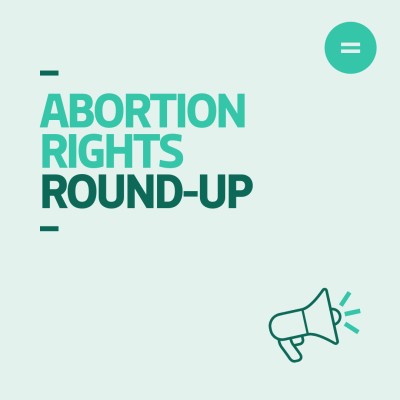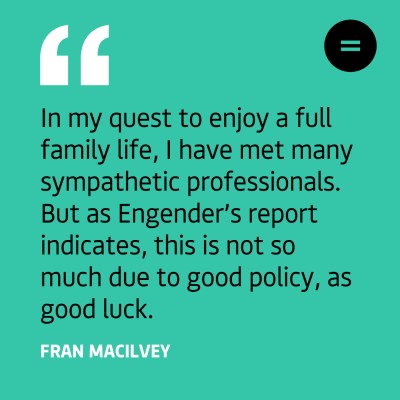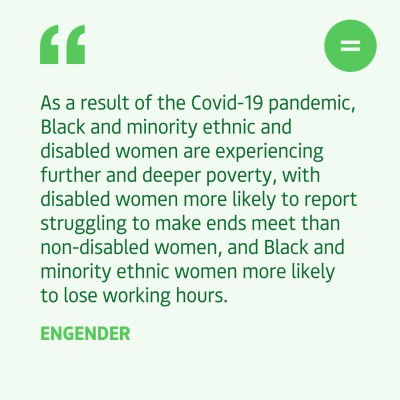Engender blog
Abortion Rights Round-Up
 What's been happening with reproductive rights over the past month? Engender members are kept up-to-date with this news through our weekly Friday Feminist Five newsletter, but in this post we've collated an update for non-members too. If you'd like to receive the weekly newsletter you can join Engender as a member here.
What's been happening with reproductive rights over the past month? Engender members are kept up-to-date with this news through our weekly Friday Feminist Five newsletter, but in this post we've collated an update for non-members too. If you'd like to receive the weekly newsletter you can join Engender as a member here.
News from the US continues to cause alarm for defenders of women’s reproductive rights, as we wait for the decision on whether or not Roe v Wade will be effectively overturned by the Supreme Court. While it’s been heartening to see protests, rallies and other actions to defend the right to choose (we particularly liked the New York Magazine’s state-by-state guide to accessing abortions, and the creative legislation in Austin, Texas), the reality of what may happen across the US in a couple of months is really scary.
In the last 25 years, 50 countries have moved to amend their laws to improve access to abortion, and this would represent a significant step backwards.
Trapped: the call for a more flexible world
Fran Macilvey is an Edinburgh-based author. Her memoir ‘Trapped’ tells the story of her life with cerebral palsy. She has also published two self-help books which she thinks of as ‘gleaning something valuable from forty years of making mistakes’ and has recently finished writing three novels about women’s experiences with the law.

As part of a series of events being organised by Edinburgh Libraries to mark International Women’s Day on 8th March 2022, I was asked to take part in a panel discussion. Our brief, to publicise the life and work of an Edinburgh-based woman (or group of women, why not?) brought me to Engender, who invited me to contribute a guest post to ‘On the Engender’. I’m delighted and honoured to have this opportunity.
Reading Engender’s 2018 report, Our Bodies, Our Rights has been a vindicating – and at times, depressing – experience. It is a brave and realistic assessment (at last!) of the gaps in health and social provision that hinder disabled women in exercising their private and reproductive choices; in effect, their most basic human rights. Whether to have intimate relationships – read that again – whether to get married and have children, and how to bring them into adulthood while running the gamut of inconsistent and unpredictable help from professionally-minded others with rather mixed agendas. Thorny personal decisions which, as often as not, we have to navigate alone, in the face of fairly generalised ignorance and many misplaced good intentions. But this is only one aspect of the price that I, and countless others, continue to pay in our efforts to participate in mainstream life.
Exploring the impact of Covid-19 on women's equality in Scotland

Over the past eighteen months, we’ve seen how the inequalities that existed before Covid-19 have been magnified and intensified by the pandemic. Covid-19 has disproportionately impacted women both at work and at home, with UN Women estimating that the impact for women’s equality could mean a rollback of 25 years of progress on women’s rights.
Women in Scotland face a reduction in paid work both due to increased caring responsibilities and being concentrated in industries hardest hit by the pandemic like hospitality and nursing, which also places women at increased risk of exposure to Covid-19. There is a widening gender gap in unpaid work as women are expected to pick up the slack created by widespread reduction in social care packages, made even more difficult by the persistent inadequacy of social security provision, which has been further compounded by the recent £20 cut in Universal Credit.
Throughout the past year, we’ve joined with organisations across the 4 nations of the UK including Close the Gap, the UK Women’s Budget Group, the Fawcett Society, Women’s Equality Network Wales and the Northern Ireland Women’s Budget Group in a polling project to collect survey data on the impact of Covid-19 on women, funded by the Standard Life Foundation and the Joseph Rowntree Reform Trust. We’ve also worked with Close the Gap to produce joint reports highlighting what this data tells us about the impact of Covid-19 on women in Scotland specifically.
Free period products, when and where we need them
In this blog, Engender's Communications and Engagement Manager, Alys Mumford, talks about our continuing work to ensure access to free period products.
A common trope seen in film and TV is a woman being caught short in a nightclub toilet and being met with dozens of new friends proffering tampons and pads. And while I do have experience on both sides of this scene, I also have memories of sneaking a pad up the sleeve of my school jumper when going to the loo, wearing a hoodie tied round my waist on a freezing day in case I was leaking, using a code word to talk about tampons on holiday (‘cereal bars’ in case you’re wondering, and no I can’t remember why), and stressing out when a borrowed tampon had an applicator which I’d never used before.
Lack of access to appropriate period products can also lead to girls missing school, women having to take days off from paid work, people using unhygienic alternatives such as newspaper, and withdrawing from leisure activities.
GUEST POST: Bridging the gender health gap
Women and girls face signiï¬cant barriers to good mental and physical health. Historic lack of funding for, or professional focus on, health issues that disproportionately affect women, or affect women differently to men, can mean that these issues are not equally accommodated for in health services or awareness-raising initiatives. This anonymous guest blog explores gendered health inequalities and what progress is being made on bridging the gender health gap.
-400.png)
It took roughly six years of medical appointments before a tentative diagnosis of chronic pain – a condition that, by definition, is pain lasting longer than three months despite treatment. Part of the issue was that the pain, among other symptoms, had never really been treated; it was repeatedly misdiagnosed, from appendicitis to pregnancy, and continuously dismissed as stress or growing pains.
It was a strange relief to eventually be referred to an endometriosis specialist and women’s heath physiotherapist session, though the relief was short-lived – while I did receive some pain management, the former concluded that the pain did not appear severe enough to suggest the presence of the condition, nor warrant further investigation, and the latter prescribed mindfulness. Like many others, until recently I had never heard of endometriosis – despite its high prevalence rate and top ranking in the NHS’ 20 most painful conditions. I also found that, like many other people, my experience of healthcare was not unique. In recent years, there has been increasing awareness and recognition of such experiences as symptomatic of a wider issue: a gender disparity in medical research, knowledge and treatment that has amounted to a gender health gap.
Downloads
 Engender Briefing: Pension Credit Entitlement Changes
From 15 May 2019, new changes will be introduced which will require couples where one partner has reached state pension age and one has not (‘mixed age couples’) to claim universal credit (UC) instead of Pension Credit.
Engender Briefing: Pension Credit Entitlement Changes
From 15 May 2019, new changes will be introduced which will require couples where one partner has reached state pension age and one has not (‘mixed age couples’) to claim universal credit (UC) instead of Pension Credit.
 Engender Parliamentary Briefing: Condemnation of Misogyny, Racism, Harassment and Sexism
Engender welcomes this Scottish Parliament Debate on Condemnation of Misogyny, Racism, Harassment and Sexism and the opportunity to raise awareness of the ways in which women in Scotland’s inequality contributes to gender-based violence.
Engender Parliamentary Briefing: Condemnation of Misogyny, Racism, Harassment and Sexism
Engender welcomes this Scottish Parliament Debate on Condemnation of Misogyny, Racism, Harassment and Sexism and the opportunity to raise awareness of the ways in which women in Scotland’s inequality contributes to gender-based violence.
 Gender Matters in Social Security: Individual Payments of Universal Credit
A paper calling on the Scottish Government to automatically split payments of Universal Credit between couples, once this power is devolved to the Scottish Parliament.
Gender Matters in Social Security: Individual Payments of Universal Credit
A paper calling on the Scottish Government to automatically split payments of Universal Credit between couples, once this power is devolved to the Scottish Parliament.
 Gender Matters Manifesto: Twenty for 2016
This manifesto sets out measures that, with political will, can be taken over the next parliamentary term in pursuit of these goals.
Gender Matters Manifesto: Twenty for 2016
This manifesto sets out measures that, with political will, can be taken over the next parliamentary term in pursuit of these goals.
 Scottish NGO Briefing for UN Special Rapporteur on Violence Against Women
Joint briefing paper for the UN Rapporteur on Violence Against Women.
Scottish NGO Briefing for UN Special Rapporteur on Violence Against Women
Joint briefing paper for the UN Rapporteur on Violence Against Women.

Newsletter
Sign up to receive our newsletter here:
Sign up to our mailing list
Receive key feminist updates direct to your inbox: